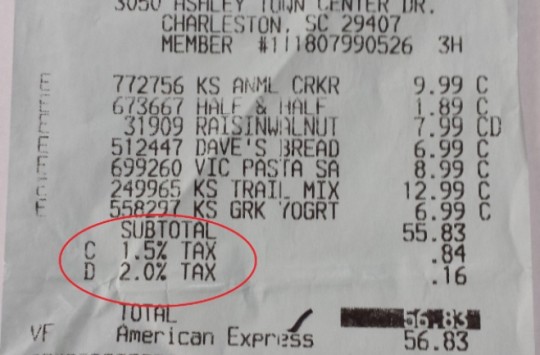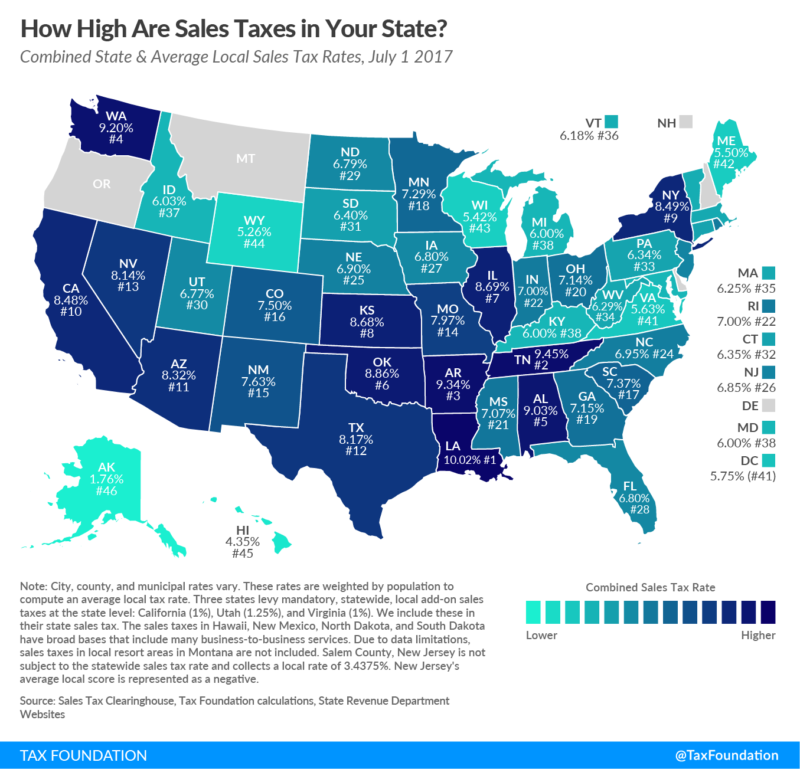
Feeling nibbled? Here’s one reason
By ROBERT MEYEROWITZ
If you shop locally and wonder where the money goes, the Tax Foundation has an explanation. South Carolinians pay the 17th-highest sales taxes in the nation, according to a new midyear report from the nonpartisan think tank.
The ranking, arrived at by combining state and a population-weighted average of local sales taxes, is another rebuke to public officials who tout the Palmetto State as a low-tax environment.
The highest rate is Louisiana, at 10.02 percent. The lowest non-zero rate is Alaska, at 1.76 percent. South Carolina comes in at 7.37 percent, just lower than Colorado (7.5 percent) and higher than Minnesota (7.29 percent). Delaware, Oregon, Montana, and New Hampshire have no sales taxes.
Last year, the Tax Foundation found that South Carolina ranked 37th among states with the best business tax climates, which weighted state sales tax at about 23 percent of five key indicators. The others were individual income tax, corporate tax, property tax, and unemployment insurance tax.
“State and local governments should be cautious about raising rates too high relative to their neighbors,” the sales tax report states, “because doing so will yield less revenue than expected or, in extreme cases, revenue losses despite the higher tax rate.”
North Carolina and Georgia have lower combined sales tax rates than South Carolina, at 6.95 and 7.15 percent, respectively. And here’s something else to keep in mind about our neighbor to the north: The Tar Heel state has shot up the rankings for best business tax climate, last year ranking 11th.
One reason South Carolina’s state sales tax, at 6 percent, is relatively so high is that its base is carved away by exemptions on everything from insecticides to paper, coal, livestock, and sweet grass baskets made by South Carolina artists. It exempts more than it collects.
South Carolina’s combined sales tax ranking also was worsened after some counties levied 1-percent sales taxes to pay for capital projects and Charleston County increased its transportation sales tax from 0.5 to 1 percent.
Nerve stories are always free to reprint and repost. We only ask that you credit The Nerve.

